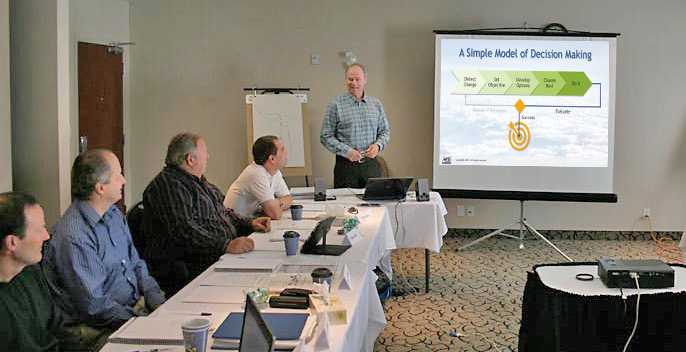“Meets the New Transport Canada Standard”
“Initial and Annual (Joint) CRM Provided”
With a strong background of over 15 years in CRM training, Aerosolutions has provided CRM courses to operators of all types. These include: airlines, commuter operators, helicopter, air taxi and aerial work, business aviation, medevac, government, maintenance, dispatchers and schedulers.
Aerosolutions CRM training meets all Transport Canada requirements as listed in Advisory Circular AC 700‑042. The content meets FAA and EASA CRM standards (but is not approved by either organization). Both CRM Initial and CRM Annual (joint) recurrent training is provided. Each case study and instructor led course is tailored to meet the training needs of each operator.
Advisory Circular ‑ AC 700‑042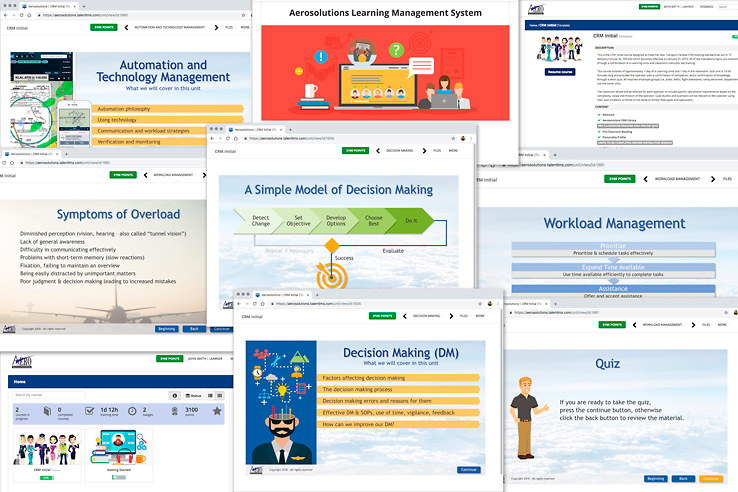
Aerosolutions provides 4 options for operators to meet their CRM training needs based on the size and complexity of their operations and their own internal resources for CRM training.
With LMS only, each participant gets online access to the Aerosolutions Initial CRM Course. The operator can then provide group training for their staff as required using their own resources and training material including a relevant case study. This case study can be included within the Aerosolutions LMS CRM program upon request. The LMS CRM program can be completed on any tablet, laptop or desktop computer from any location with a satisfactory internet connection. It takes 4-5 hours to complete and is divided into 12 topics. The CRM Course is designed to meet the needs of all operational employees: pilots, maintainers, flight attendants, ramp personnel, flight followers and dispatchers, admin staff and management. A course completion certificate for each participant and full report to the operator is provided. This training is applicable to aviation companies around the world.
Cost for LMS access: $150 per person for the first to 5 people; $100 per person for the next 10 people; $60 per person for any additional people. For larger groups over 25, contact us for discount information.
With the LMS and case study option, we provide training on all topics in the Transport Canada Advisory Circular including a relevant case study. The case study can be taught internally by the operator to further understand the CRM skills developed in the LMS online portion, or an in depth discussion can be led by Aerosolutions using Zoom Meeting. Applicable to aviation operators worldwide.
Cost for LMS access: $150 per person for the first to 5 people; $100 per person for the next 10 people; $60 per person for any additional people. For larger groups over 25, contact us for discount information.
Cost for the relevant case study: $250 regardless of the number of people using the LMS if client led.
Cost: $700 for the case study (or studies) regardless of the number of people when led by Aerosolutions via Zoom Meeting.
This option includes the full LMS CRM Course and a full day tailored and interactive videoconference group session by an instructor via Zoom Meeting. All LMS topics (or only selected topics if requested) are further discussed and developed during the Zoom Meeting. Several case studies are used to help attendees to further understand the CRM issues developed in the LMS online portion and apply these CRM principles to their work environment. Course content is tailored to meet the operational needs of each operator.
The LMS and Zoom Meeting option is a great way to reduce travel costs and to join employees in a group session when they are geographically far from each other. Applicable to aviation operators worldwide.
Cost for LMS access: $150 per person for the first 5 people; $100 per person for the next 10 people; $60 per person for any additional people. For larger groups over 25, contact us for discount information.
Cost: $2500 for full-day tailored Zoom Meeting; multiple sessions may be subject to discounts. Contact Aerosolutions for more information.
This option includes the full LMS CRM Course along with a full day tailored classroom session (or multiple sessions) at your requested location. All LMS topics are further discussed and developed during the classroom session. Several case studies are used to help attendees to understand the CRM skills and techniques developed in the LMS online portion and apply these CRM principles to their work environment. Classroom content is tailored to meet the operational needs of each operator.
The LMS and classroom option is the best way to ensure full understanding of CRM skills and techniques and how to apply them to the operation on a daily basis. Applicable to operators worldwide.
Cost for LMS access: $150 per person for the first 5 people; $100 per person for the next 10 people; $60 per person for any additional people. For larger groups over 25, contact us for discount information.
Cost: $3000 for a full-day tailored classroom session plus travel expenses and travel time ($700/day); multiple sessions may be subject to discounts. Contact Aerosolutions for more information.
Crew Resource Management (CRM) Initial
These mandatory 10 topics are covered on the CRM Initial Course though a combination of e‑Learning LMS modules and the 4 options discussed above:
- Threat and Error Management
- Communication Skills
- Situational Awareness
- Pressure and Stress
- Fatigue
- Workload Management
- Decision Making
- Leadership and Team Building
- Automation and Technology Management
- Relevant Case Study
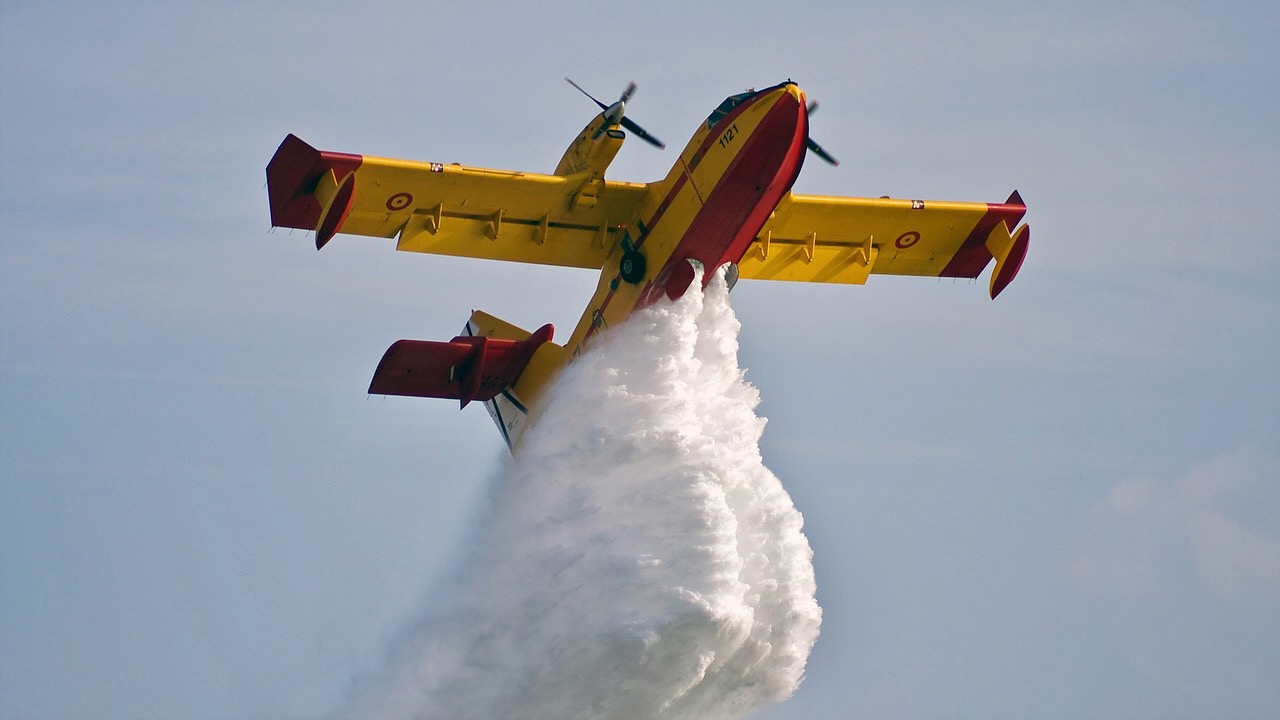
The CRM initial course consists of approximately 4‑5 hours of e‑Learning LMS modules and either option 2, 3 or 4 listed above. The e‑Learning units are hosted on the Aerosolutions Learning Management System (LMS). Each unit is 15-30 minutes long and is completed with a short quiz. The LMS units have been designed to satisfy the Transport Canada CRM training requirements for all employee groups (i.e., flight crew, flight attendants, dispatchers, flight followers, schedulers, ramp personnel, maintenance and admin personnel). They contain specific examples and content for each group.
Full course classroom or Zoom Meeting sessions cover all 10 mandatory topics in-depth. Tailored content for classroom or Zoom Meeting sessions can include any combination of the following 4 employee groups:
- Pilots
- Maintenance and Ramp Personnel
- Dispatchers, Flight Followers and Schedulers
- Flight Attendants and Administrative Staff
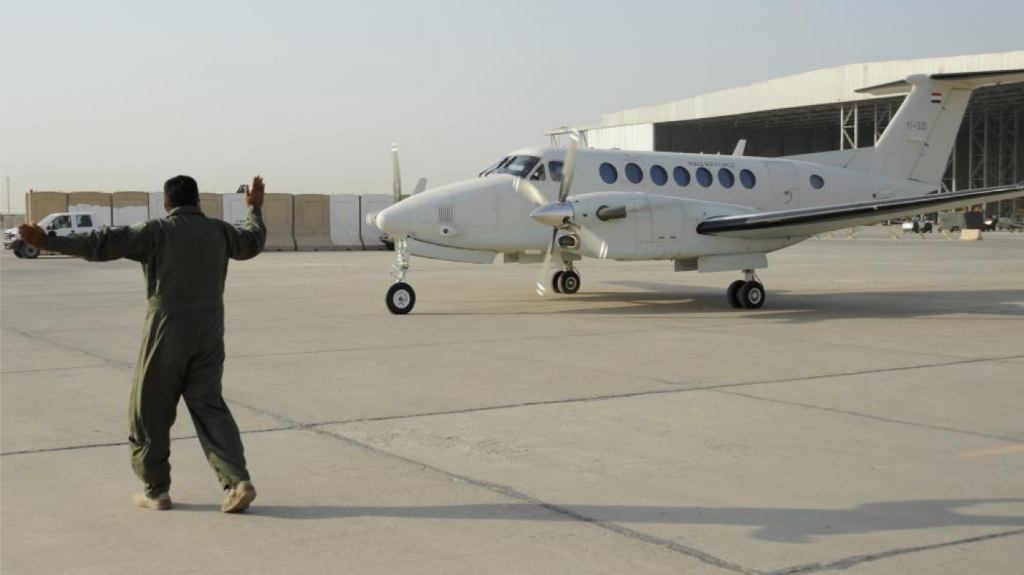
Instructor led case study discussions via Zoom Meeting are also tailored to meet the operational needs of the operator and usually contain 2‑3 case studies to try to cover as many CRM topics in‑depth as possible.
The classroom or Zoom Meeting presentation, discussion, case studies and examples will be tailored for each operator and will include specific operational requirements based on the complexity, scope and mission of the operator. Material will include the operator’s own incidents, or examples of other similar fleet type incidents.
 The chief instructor, David Holland, has been involved in industry leading CRM developments with a major airline and other clients for over 10 years, including developing training for assessing CRM during flight checks and CRM in an Advanced Qualification Program (AQP).
The chief instructor, David Holland, has been involved in industry leading CRM developments with a major airline and other clients for over 10 years, including developing training for assessing CRM during flight checks and CRM in an Advanced Qualification Program (AQP).
Crew Resource Management (CRM) Annual (Joint) Course
CRM Annual (Joint) training is required annually for CAR 702/703/704/705 operators as per AC 700‑042. This is CRM Recurrent training and meets some international standards as well. Aerosolutions CRM Annual training consists of approximately one-half day of e‑Learning with 5‑6 LMS units, and options 2, 3 or 4 listed above (case study, Zoom Meeting or classroom sessions). The classroom or Zoom Meeting options cover the following topics in-depth:
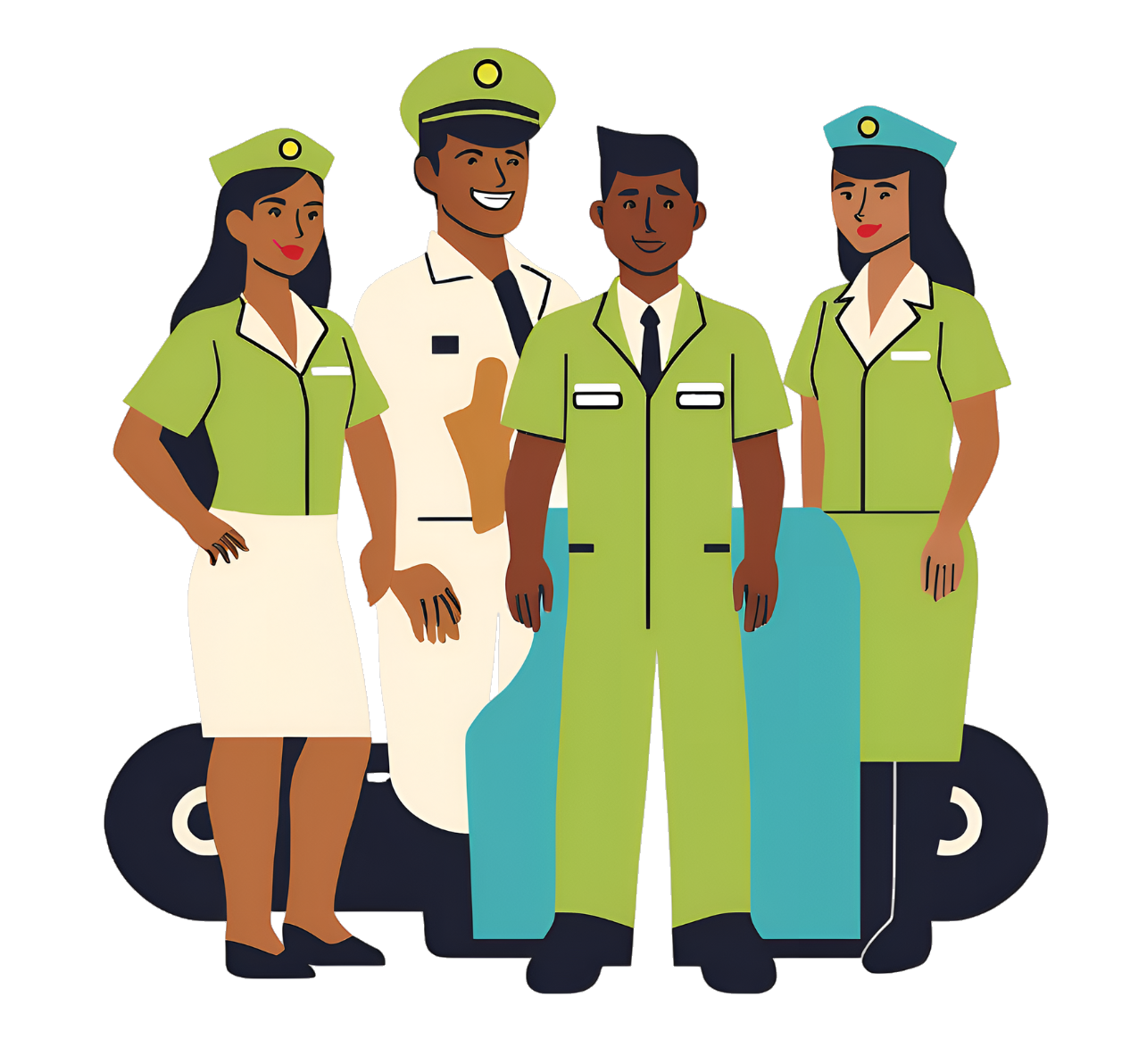
- Threat and Error Management
- Relevant Case Study
- Safety trends within the operator’s specific operation
- Crew member evacuation drill and debriefing (if applicable)
- 3‑4 Core Elements from the CRM Initial Course list
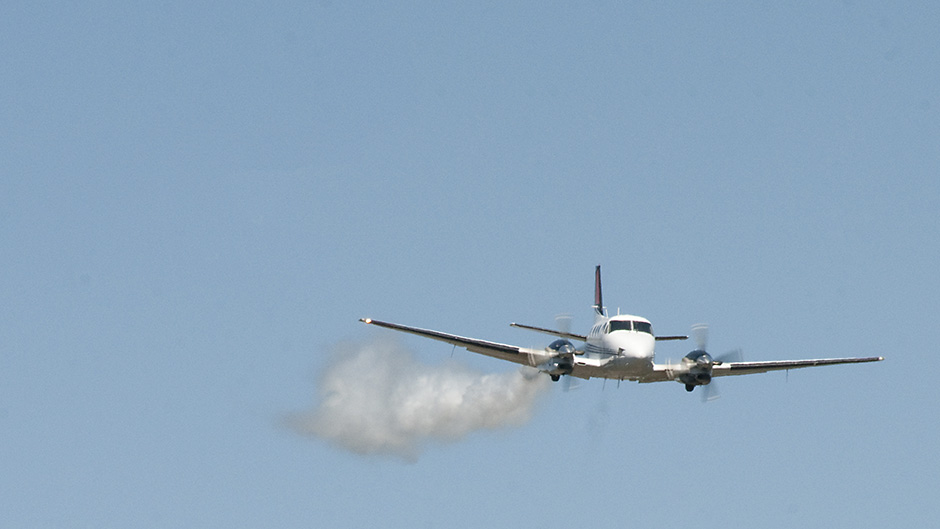
All groups (pilots, AMEs, FAs, dispatchers, ramp personnel) attend the annual joint classroom or webinar training as applicable. Aerosolutions will tailor this phase to cover all required topics using appropriate examples, videos and case studies that provide meaningful CRM learning for each group in attendance.

In some operations, additional time may be spent with one or more of the employee groups once the joint training is completed.
